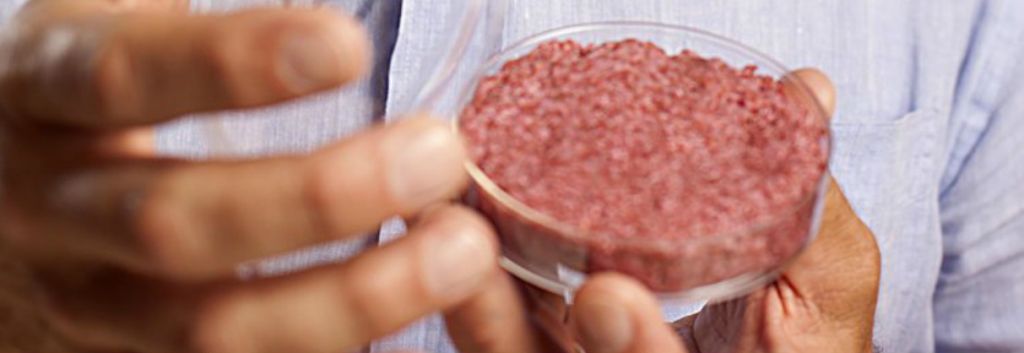Newsletter Signup - Under Article / In Page
"*" indicates required fields
Dutch startup Mosa Meat has raised €7.5M in a Series A round, which will support the development of a first lab-grown meat product that is expected to make it to market by 2021.
Mosa Meat is a Dutch startup co-founded by Mark Post, the scientist behind the world’s first lab-grown burger. After an early investment from Google co-founder Sergey Brin, the company has now raised €7.5M from investors including M Ventures (Merck’s venture capital arm) and the Bell Food Group, which is the largest meat company in Switzerland.
The funding will support the development of an industrial process to produce meat in the lab at larger scales to reduce its price, and to prepare for the construction of a pilot production plant that could produce over 100 tons of lab-grown meat per year. “This will be enough to produce meat for a handful of restaurants,” Peter Verstrate, CEO of Mosa Meat, told me.
Mosa Meat expects to introduce the first product made of lab-grown meat in the market by 2021. This will be a premium product that could be then followed by less expensive products as the company scales up production.
“The first product will be a ground beef product, most likely a hamburger,” said Verstrate. “Ground products make up 50% of the total meat market [and] it is more of a scientific challenge to create a 3D structure, such as a steak.”
Lab-grown meat could solve some of the biggest problems of our time. As the human population increases, the demand for meat is expected to grow by 70%. However, traditional farming takes up a huge amount of land and is considered one of the biggest contributors to global warming.
In addition to reducing land use and pollution, lab-grown meat could be healthier as it doesn’t require using antibiotics. And it is made without harming any animals, as all that is needed to grow it is a small biopsy.
“We are focussing on beef because cows are the least efficient links in production — chickens are four times as efficient — and therefore cows use the most resources and emit the most greenhouse gases,” Verstrate said. “We plan to expand to other species in future.”
While this is the first fundraising round in Europe for a cultured meat company, US-based company Memphis Meats has already raised funds to develop its own cultured meat products, including a beef meatball as well as chicken and duck meat. Other companies in the space are SuperMeat in Israel, working on cultured chicken, and Finless Foods in San Francisco, focusing on fish meat.
“All of the cultured meat companies are working toward the same goal of producing meat more sustainably, so we have very much the same objectives,” said Verstrate. “We are currently the only company based in Europe, and we do feel we’re very strong on the technical and scientific front, having been working on this since producing the world’s first cultured hamburger in 2013.”
According to Verstrate, Mosa Meat is now initiating the process to prove its lab-grown meat is safe for consumption and receive approval from the European Food Safety Authority, which will allow it to sell cultured meat in Europe.
Multimedia via Mosa Meat
Are you interested in sustainable agriculture and food R&D?







